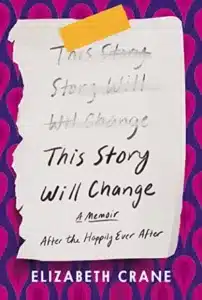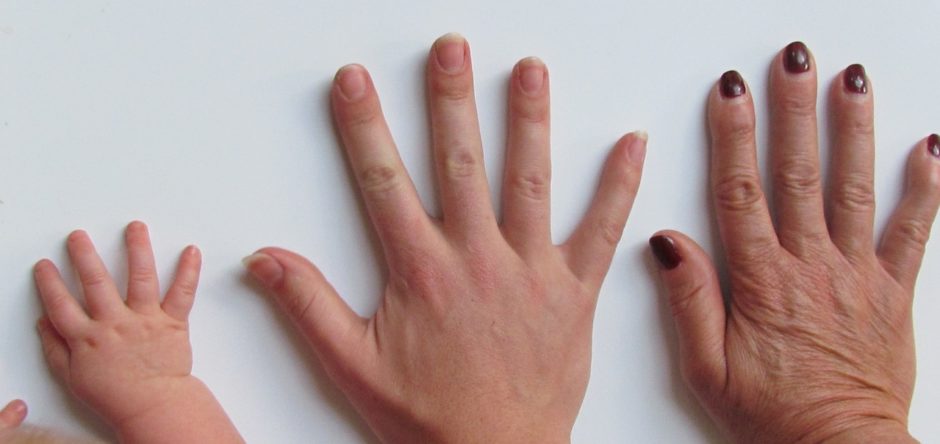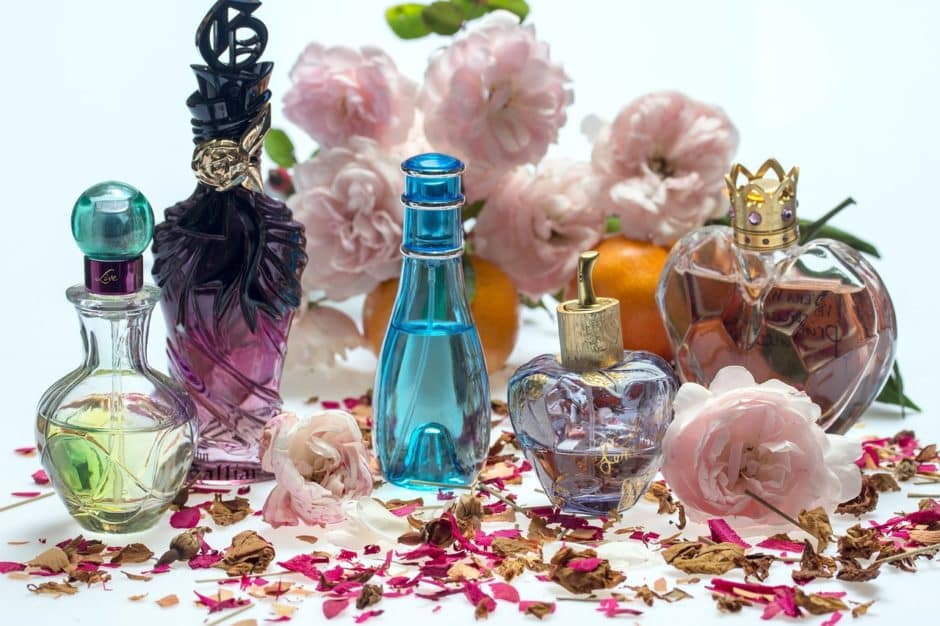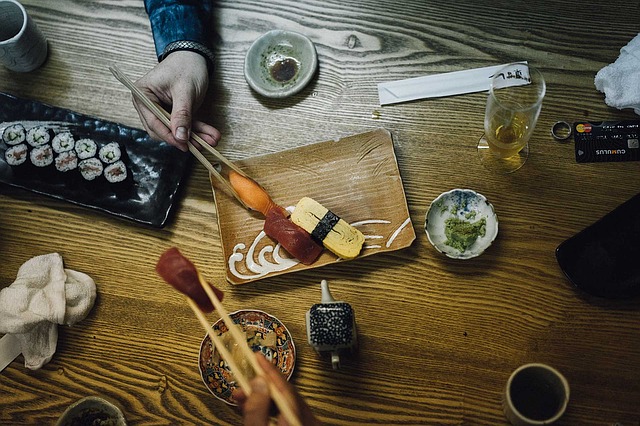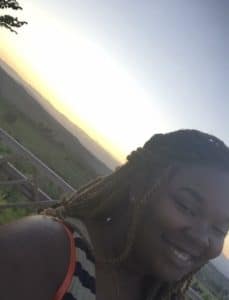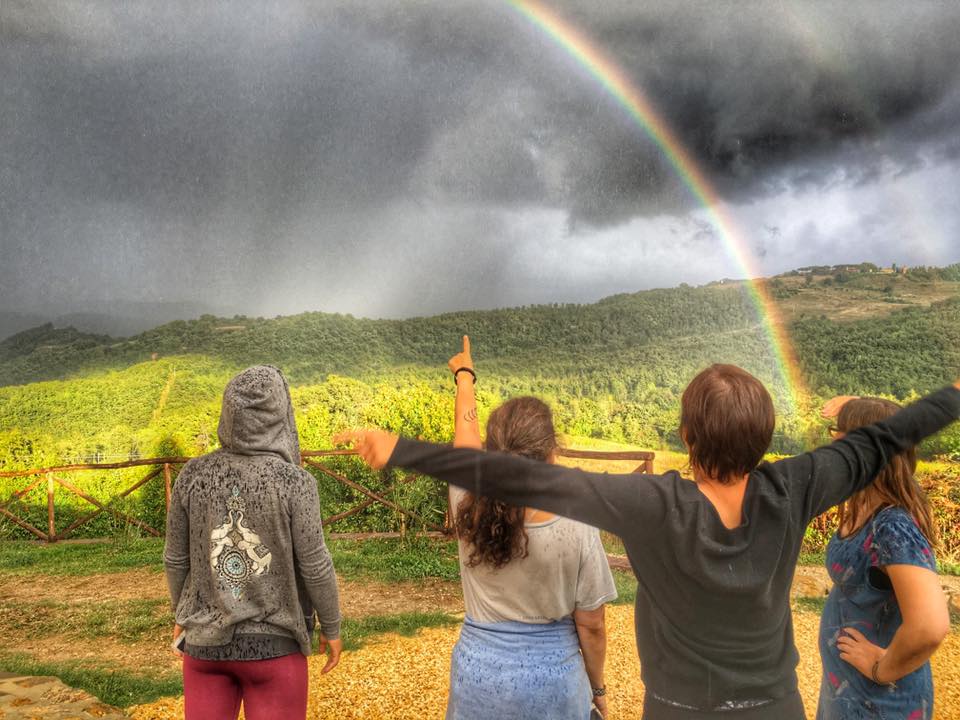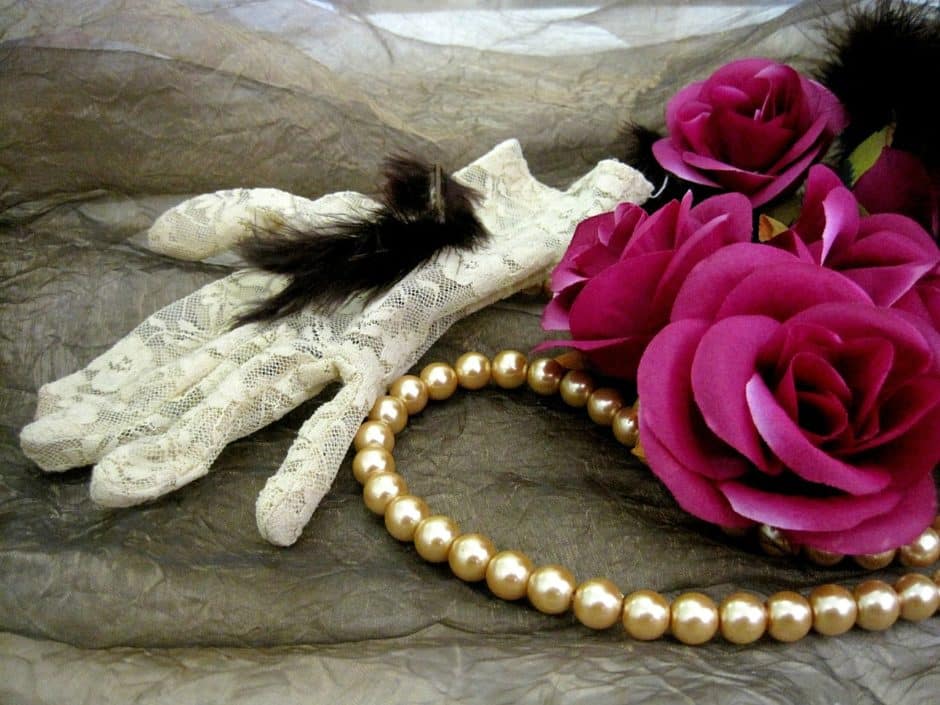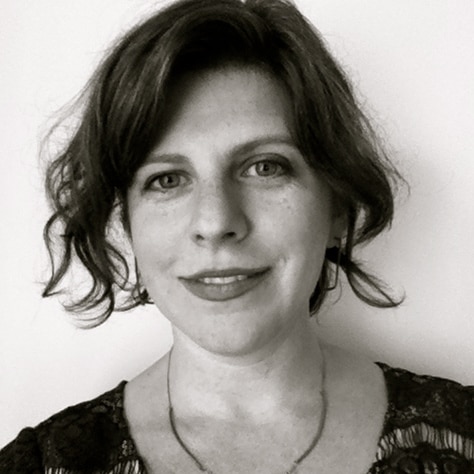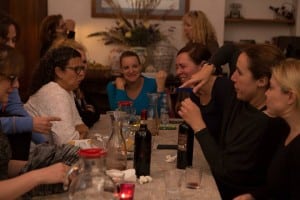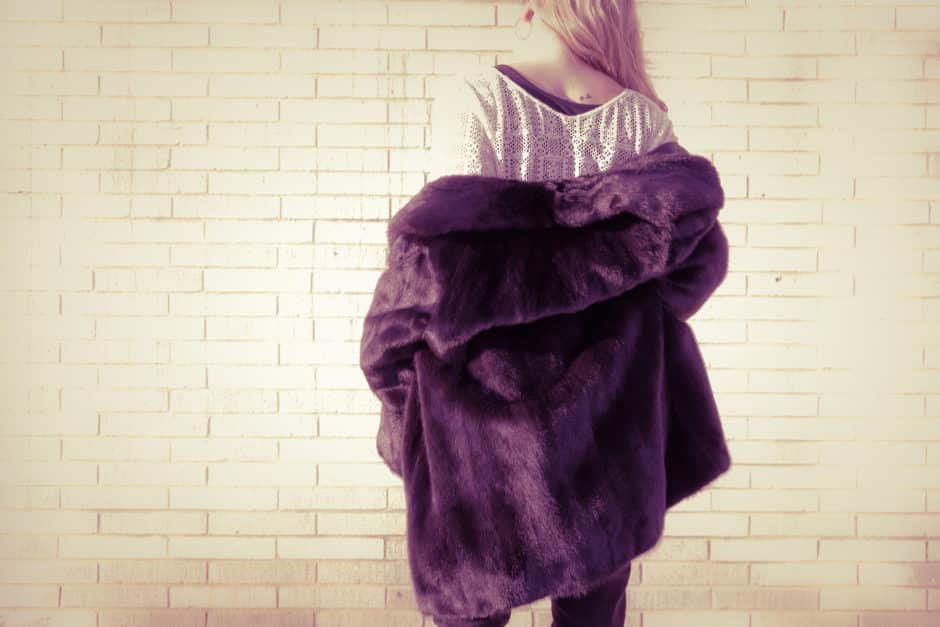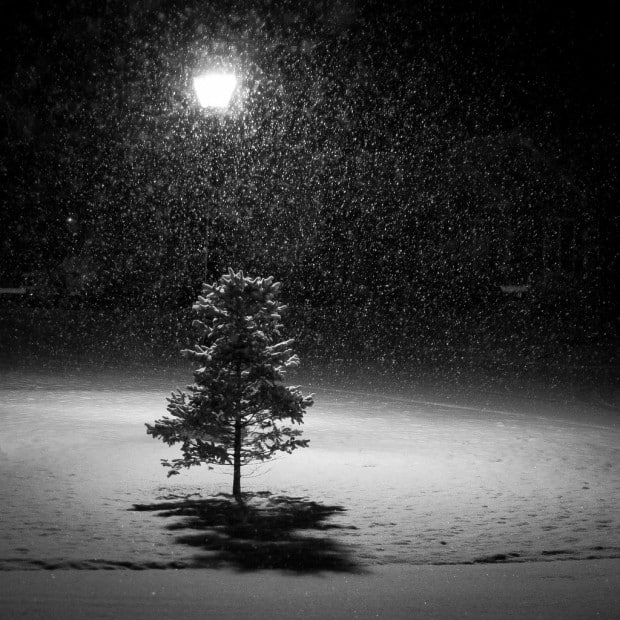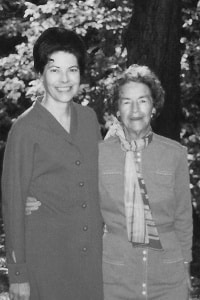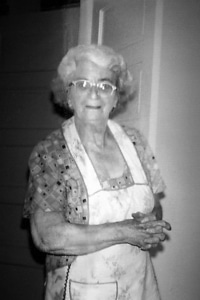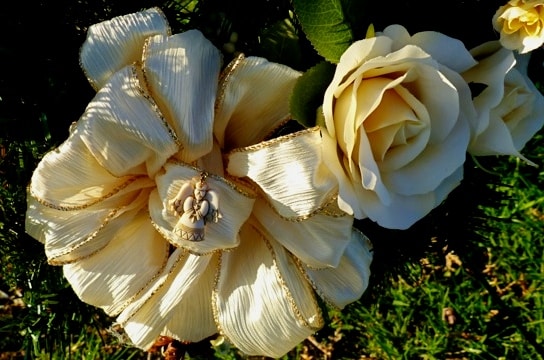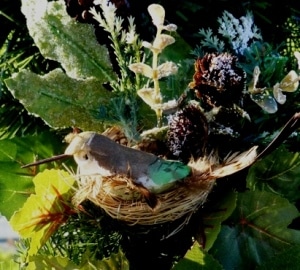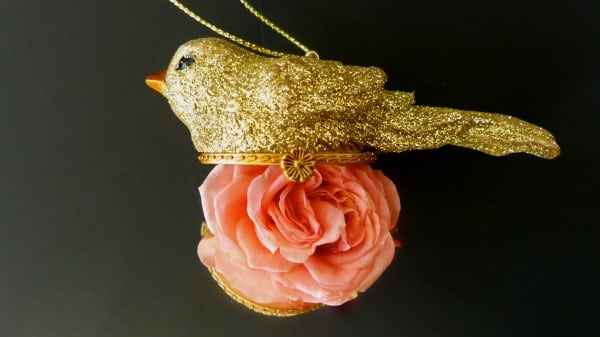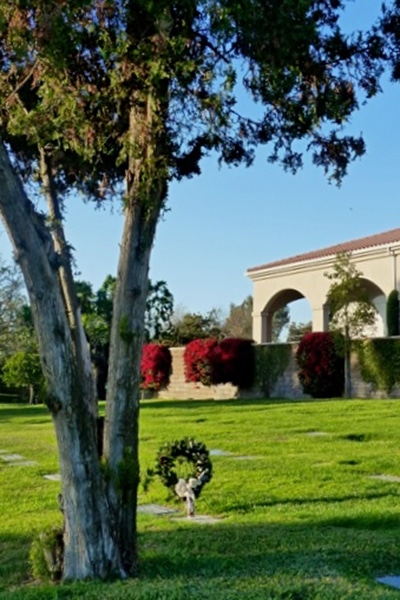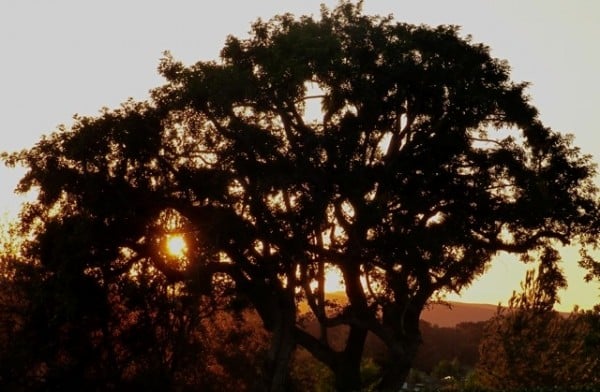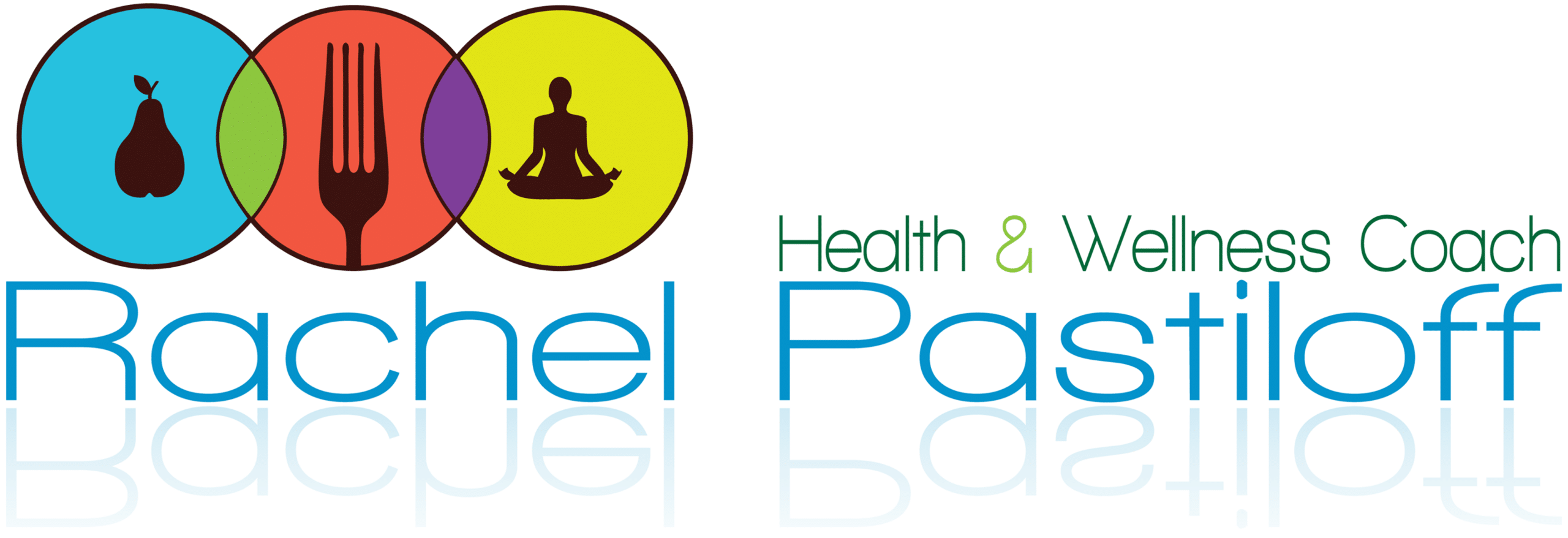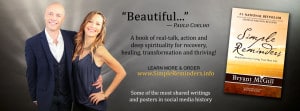Mom: I think we were quite young when it really started to kick in heavily. And then she was going every day to see a psychiatrist and we were told she was getting French lessons. We were never told what was so. We were never even told she committed suicide.
Julia: How did you learn that she did?
Mom: I guessed
~
When I go through the mail today, I see I have received an envelope from my mother. I’d know her cursive anywhere, her signature ‘S’– for Sally–a series of loops that used to leave me awestruck as a child.
It will either be a New Yorker article or her mother’s suicide notes. She’s been promising both for months.
I bury the envelope within that day’s small pile of mail where it sits, nestled between a ValuPak and a Company Store catalogue. I pass the pile every time I enter or leave my apartment, adding new mail to it daily.
We are standing in the vestibule a week later, when my husband Scott knocks the catalogues and envelopes to the ground for the third time. The small pile has become an unwieldy stack.
“Sweetie,” he says, with a raise of the eyebrow, “would you like me to go through the mail?”
“Oh,” I say, as casually as I can, “no. It’s on my list for today. I think my Grandma Marjorie’s suicide notes may be in there.”
“Jesus,” he says, with a shudder, and wanders into the kitchen ending the conversation.
As I lean down to pick up the scattered envelopes and catalogues, my daughter Esme looks at me with curiosity and says, “Maymay help?” At nearly twenty months, for her the commonplace is exciting and the trivial consequential. On another day, we might make collecting the mail a game. Today, I panic. She cannot touch that letter. She cannot hold that part of the past in her hands. She will be infected. Her brightness eclipsed.
“No,” I reply, all my usual gentleness disposed of. She looks confused for a moment and then her eyes fill with tears. She says simply, sternly to herself, “Maymay help. No.” I reach for her to apologize, but she is already walking away, managing her disappointment in me without me.
Left alone in the vestibule, my body floods with adrenaline. I have an urge the throw myself between my peaceful life and the envelope; to fling the papers out the window and watch them float to the ground like feathers. Or ashes.
Instead, I follow Scott and Esme into the kitchen to make plans for dinner. I do not touch the mail. The scattered envelopes remain until I restack them later, careful to hide the letter somewhere in the center, where it will not be seen.
The next day, while he is out and she is napping, I take the giant stack into the living room and sort it. Stripped of its pile, the envelope lies alone in the middle of the coffee table. White paper sitting on a black surface, it almost glows. I am suddenly tired. I lie down on the couch to rest my eyes for a moment. I wake up an hour later to Esme calling me.
“Mamaaaa? Maaaama?”
I head toward her room. I’ll open the envelope tomorrow.
~
Mom: What I remember happening in the house is just, I didn’t want to be there. And I translated it as a shame that the house was so big and we were so rich and the lights were always on. It was like showing off when I wanted to crawl in a hole. I remember someone who didn’t usually bring me home from a ballet lesson dropping me off at the house and me telling them I didn’t really live there. I was just visiting.
Julia: How old were you at this point?
Mom: I must have been nine, ten. Before our mother went to the hospital, but things were already really bad.
~
That night I dream I am marched into an arena filled with silent spectators and shot point blank in the back of the head. I feel my body hit warm hard dirt and sand. I feel my heart slow to a dull thudding stop.
I wake, sweaty and flooded by memory. I pad into the living room in the semi-darkness and stand in the doorway looking down at the table where the envelope lies, waiting.
–
It is eighteen years ago. I am twenty and sitting on the kitchen counter top of my childhood home, legs dangling, fists clenched sweaty on my thighs. Even though I’ve been gone for nearly three years, every homecoming still turns me into an angry child with sweaty palms and feet that don’t quite touch the floor. I hate this place. I hate the unopened moving boxes that have been gathering dust since we moved here ten years ago in 1990, peppered throughout the house like landmines marked ‘KITCH G’ and ‘BATH A’ in my mother’s long capital script. I hate the dust, the endless drafts that seem to pour through the walls, the way that— despite its many windows— the house always feels dark. I hate this kitchen, which was ripped out one weekend in a gleeful torrent of artistic ebullience when my mother’s college roommate was visiting with her daughters in 1992 and marked the beginning of a renovation that just never happened. We painted murals on some walls, others we ripped down to the studding. Eight years later, it’s all still there: the angels my mom’s friend Jamie drew, the multicolored phrase ‘WE CAN LIVE IN HARMONY’ I wrote over the door frame which was of course accented, in perfect twelve year old fashion, with a lopsided rainbow. I am just a visitor now, exiled by choice and obligation from my new life in New York City for this weekend visit, but whenever I come home I always leave gasping, as though I might be boxed up and left in the corner. Marked ‘J’ for Julia and never opened again.
I repeatedly bang my heels into the cabinet behind them— percussive and rhythmic: a pounding, a heartbeat. As if by making noise I will not disappear into the past. As if it will make her see me. The twenty-year-old version of the baby she pushed out of her body and the girl who—at seventeen— pushed her way out of this home. We spiral down anyway, chasing and fleeing. My heels, it turns out, are a drumbeat that drives us farther away from this moment and into the twistable memory of my childhood, of what was and was not.
We are not fighting about the fact that I was barred from wearing a bra or shaving my legs until I was well into high school. Nor are we screaming about the fact that once I reached thirteen and therefore passed the age my mother was when her mother died, she systematically started trying to remove all traces of me from the house by putting any belonging I had left outside of my room in our moldy mouse haven of a basement. KITCH G would last through the turn of the millennium but my Doc Martins couldn’t make it through the afternoon. No. We are screaming about my freshman year high school track meets, to which she made one frowning appearance with my brother and was never after seen again.
“You only came to see me run once! And you never said congratulations! You never said you were proud of me!” I scream, sounding like a rejected script page from Saved By The Bell. Tears are streaming down my face and I have failed us both in this. In addition to never discussing our shared past, my mother and I do not—as a rule— cry in front of each other. Crying is weakness. Survival dictates fury.
“You never said you needed me to! You never needed me that way!” she responds, shock and confusion on her face.
“Of course I did!” I don’t say.
“I still do!” I don’t say.
“After enough disappointment, I learned not to need you at all!” I scream.
I can see this remark land on her like a tidal wave, its weight crushing any idea that still exists that our relationship can be saved, that I understand her at all. She is crying now, in a ragged way that embarrasses me.
“You’re lucky I was even alive,” she says, quietly.
Alive. It is the one thing I cannot contest. The thing she gave that was not given to her; the offering that should forgive all other transgressions.
She looks at me. I look away. She breathes as if to speak but says nothing. I look at her to end the silence, to let her know it’s ok not to say anything, but she has looked down. This is the story of our relationship; we seek but never connect, we reach but never touch.
Then, quietly, she says, “Would you like to see my mom’s suicide notes?”
I stare at her, shocked. At her freckled cheeks and auburn hair. The ‘slipper’ nose she hates. The face I love but cannot tolerate. I do not know how to respond to this new offering. I didn’t know these notes existed, let alone existed in our house. I was seven when I learned my grandmother killed herself and nearly eleven before I saw a picture of her, discovered I had her eyes. I’ve spent my life since then wondering where behind our shared eyes her sadness might reside in me, and how I might scoop it out, a surgical procedure of total removal, always fearful of being eaten from the inside out, a nice snack for the darkness that swallowed her whole. If I read these notes, will I be welcoming something? Opening a door? But my mother has reached. I will reach back.
“Ok,” I say.
We pad upstairs. She goes first. I follow. We pass the boxes and the dusty furniture and wend our way to her room. I sit on the floor next to her bed while she rummages through her dresser and takes out several pieces of folded blue stationery. She shuffles them. She doesn’t look at me.
“These aren’t the originals,” she says, “these are copies Aunt Ellen wrote out for me. The cross outs are my mom’s, though. Apparently at the bottom of the one to us there were water marks that Ellen thinks means she was crying. Anyway, here you go.” I take the pages and perch in a patch of sunlight on the edge of her bed to read. She hovers nearby.
~
Back in the present, three days later, I orbit the envelope, still on the coffee table. When it comes to Grandma Marjorie, I’m a satellite circling a planet I will never catch but cannot release.
In the early hours while the house was quiet, I dreamt I was dying of some unnamed illness and leaving my daughter behind. There was nothing I could do to stop it. I felt myself reach for my life, my child. I felt them both slipping away. I woke in the darkness sure that I was ill, disappearing and spent the morning checking my body for the tender swollen places death might live.
I am angry with a dead woman for bringing her despair into my home. I am angry with myself for inviting it.
I have spent years building walls of safety, relegating the chaos of my childhood to tiny piles. My daughter’s life is peaceful and her joy, infectious. In our home, there is evidence of her everywhere. I want her to grow up never questioning her place in the fabric of our family, never doubting my presence or my love for her. She doesn’t know that darkness is her birthright and I have no intention of teaching her.
I imagine my mother sending me her past, trusting me to hold it so she no longer has to. My mother who has gentled, who has turned her grief and rage into a soft forgetfulness, a longing to connect, to be close; who keeps urging me to take ‘all this pain and make something beautiful’.
I pick up the envelope and turn it over in my hands. There are four sheets of paper inside— copies of the handwritten copy I read eighteen years ago— folded neatly into the pocket of a navy note card from my mother; a golden eclipsed sun and many stars that says simply, in her long, loopy script:
As promised.
Love you
sweetheart.
~
Mom: I mean, there are people who have known me for a long time that don’t know my mom committed suicide. People know Ellen about an hour and a half and they know.
Julia: Why do you think that is?
Mom: I think I would say that I’m ashamed somehow. That’s not what mothers do. That you can’t even…you know…not even for you.
~
After reading, I fold the pages and sit, holding them in my lap. I think of my daughter’s tiny body, asleep in the next room, safe in her knowledge of me. I imagine my mother as a child, suddenly motherless. I remember myself at twenty, sitting with these same pages, my mother just across a patch of sunlight. Through time and space I feel my mother look at me. I look back. We reach.
Julia Motyka is a writer, performer, and yoga teacher. She lives in NYC with her husband, two kids, and an ever-growing menagerie of animals. She’s working on a memoir and an essay collection. Occasionally she posts things @juliamotyka_me. Maybe she will tweet someday. That day is not today.
***
Wondering what to read next?
This is not your typical divorce memoir.
Elizabeth Crane’s marriage is ending after fifteen years. While the marriage wasn’t perfect, her husband’s announcement that it is over leaves her reeling, and this gem of a book is the result. Written with fierce grace, her book tells the story of the marriage, the beginning and the end, and gives the reader a glimpse into what comes next for Crane.
“Reading about another person’s pain should not be this enjoyable, but Crane’s writing, full of wit and charm, makes it so.”
—Kirkus (starred review)
***



